“All our life, so far as it has definite form, is but a mass of habits,” wrote the psychologist William James.
I think that may be as true online as it is in real life. We tend to do things in a fairly regular pattern; log onto email first, check the news, browse social media, read blogs, get outraged.
Yes: outraged.
Some days I am amazed at how much potent vitriol gets spewed all over the Internet. (Other days I’m just used to it.)
One of the strangest of online habits may be when people repeatedly get upset with the same bloggers and websites, and exclaim their feelings in the comments section and on social media. It’s as if they are going into McDonald’s every day and complaining about all the fast food that’s in there.
The upside of websites you find horrible is that you don’t have to read them.
Nor do you have to follow people that make you mad on Twitter or Facebook.
That is, unless there’s a tiny part of you that loves the outrage; that’s just waiting, poised, for that one stupid pastor to tweet something horrible; for that popular blogger to post something worth getting upset over.
Somewhere I’ve confessed to this particular online vice — checking out a website that I never agree with just to see what looney arguments they’re making these days so I can spend a little time making counterarguments in my own head and possibly even stewing over how misogynist/unChristian/graceless/unjust that person or group seems to be.
I’ve just finished reading the really excellent book The Power of Habit: Why We Do What We Do in Life and Business by Charles Duhigg and I’m more convinced than ever that outrage in the blogosphere is an addictive habit. Duhigg explains the science of habit as lucidly as I imagine it can be explained.
Basically, habits have three steps:
- Cue: “a trigger that tells your brain to go into automatic mode and which habit to use”
- Routine: “can be physical, mental, or emotional”
- Reward: “helps your brain figure out if this particular loop is worth remembering for the future”
“Over time,” Duhigg writes, “this loop–cue, routine, reward; cue, routine, reward–becomes more and more automatic. The cue and reward become intertwined until a powerful sense of anticipation and craving emerges.”
It seems to me that outrage on the Internet is a habit that falls neatly into this three-step process, and possibly looks something like this:
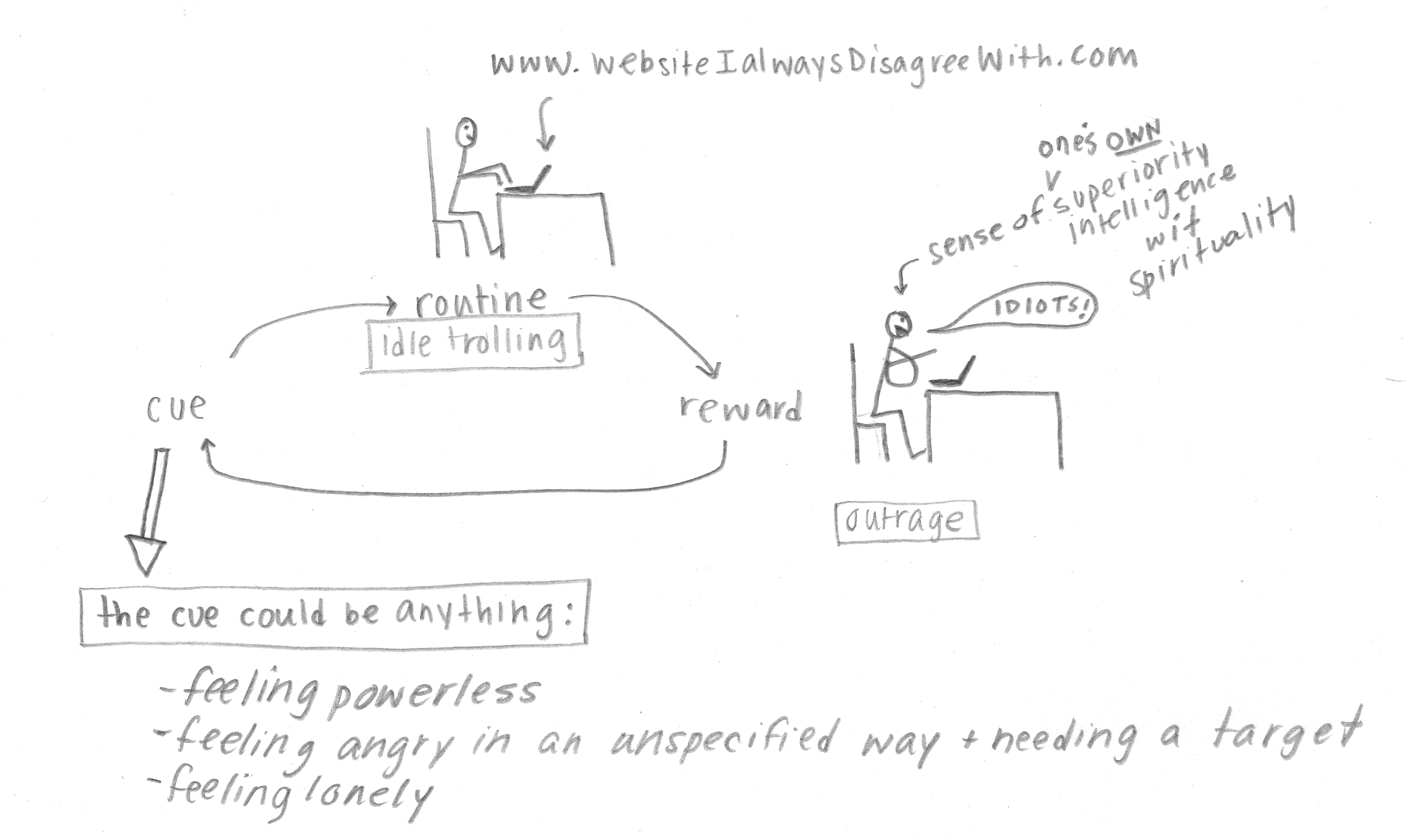
Much the same thing goes for the actual act of angry/inflammatory commenting (or tweeting):

Have you ever been in a church or other group with a person (or people) who seem to crave conflict — who are seemingly always on the prowl for a new controversy; who seem unhappy, bored, and restless if things are too peaceful and too quiet? Have you ever encountered a person who seemed to get enjoyment from provoking other people?
Do you remember being told to ignore the person bullying you, because they’re just looking to get a rise out of you, and if you ignore them, they’ll eventually stop? That’s because whomever was advising you discerned (probably quite rightly) that the person bothering you was just looking for trouble — or at least, for some kind of response.
Developing an addiction to Internet outrage is probably pretty similar to that, and it is probably exacerbated by the addictive nature of social stimulation on the Internet itself. Consider the following bit from Duhigg’s book:
“When a computer chimes or a smartphone vibrates with a new message, the brain starts anticipating the momentary distraction that opening an email provides. That expectation, if unsatisfied, can build until a meeting is filled with antsy executives checking their buzzing BlackBerrys under the table, even if they know it’s probably only their latest fantasy football results.”
Why do you think that if you’ve got open tabs on Facebook and Twitter on your computer, a little number pops up in the tab to tell you how many ‘notifications’ or tweets you’ve missed? As I was typing the previous sentence, a little icon in the corner of the WordPress toolbar blinked to remind me that there are comments or other bloggerly notifications I haven’t yet seen. Because we homo sapiens just love novelty, we can’t help but click over to see what’s new or what we’ve missed, even though we know it’s just as likely to be some spammy bit o’ nothing as it is to be something that’s actually worth our time.
Combine that addiction-to-the-new with a little bit of energizing conflict or debate and you have a pretty potent brew.
(And I think indignation over whatever outrageous thing has just aired on television is just one variety of this habit.)
But as Duhigg’s book makes clear, “habits aren’t destiny.” They can be changed, often simply by noticing how the pattern of habit (cue-routine-response) works and by noticing what we’re craving and what actually satisfies it.
Before you end up aimlessly roaming the Internet and getting outraged over what So-and-So is saying over on That There far-left or far-right or Reformed or Baptist or Whatever blog so that you can comment and tweet angrily about it, stop and ask yourself:
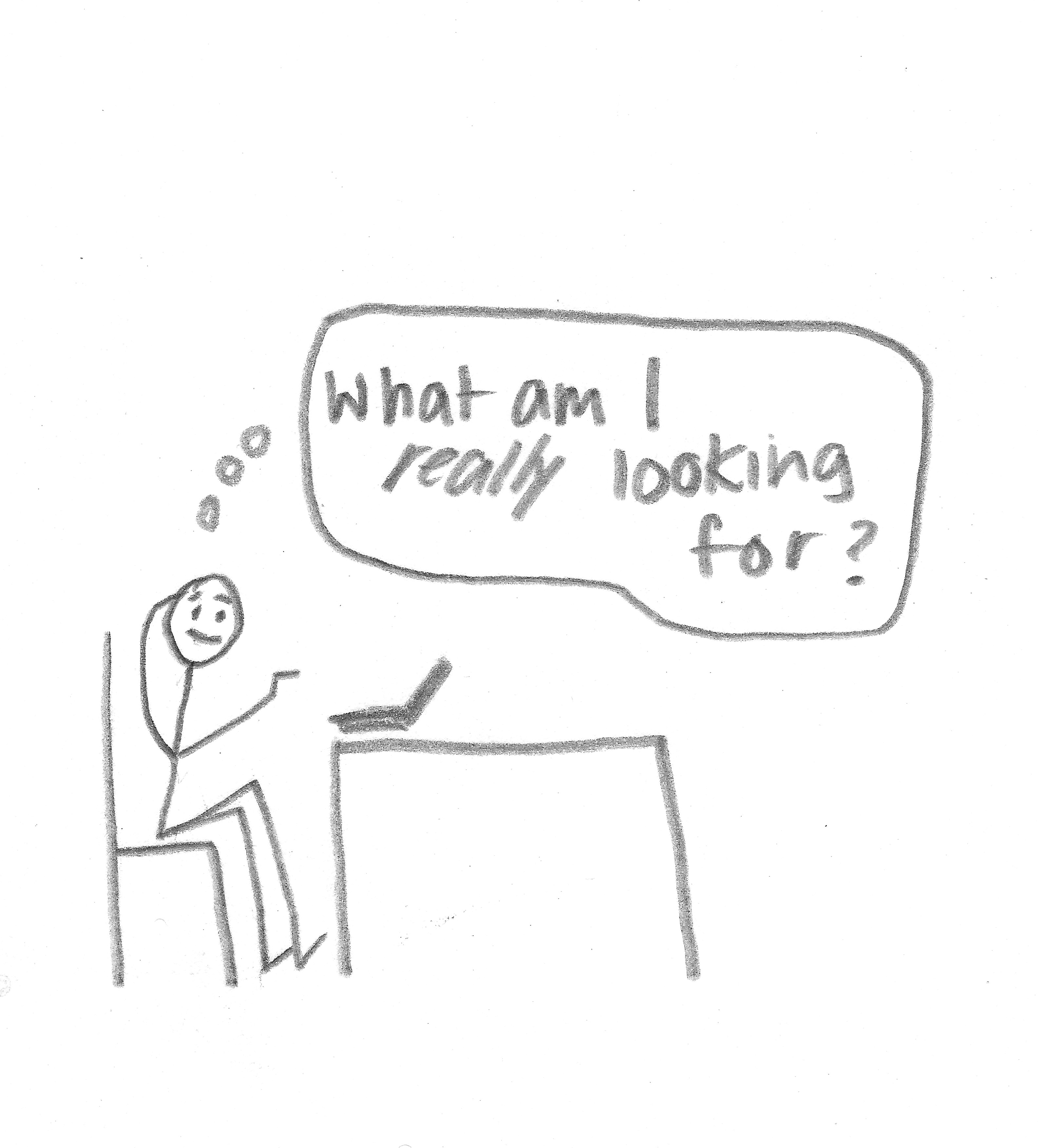
If what you’re looking for is some good human interaction why not try …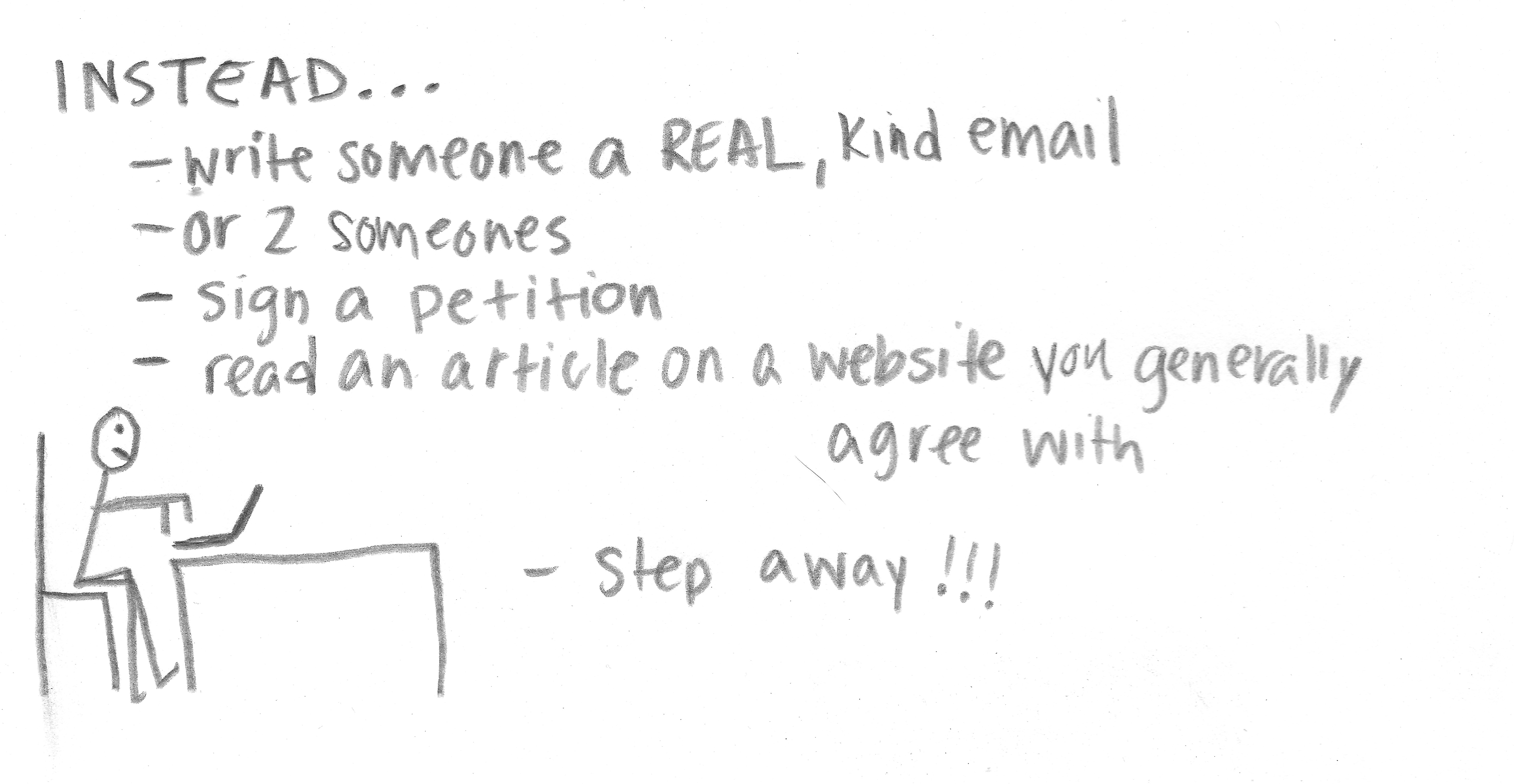
or even,
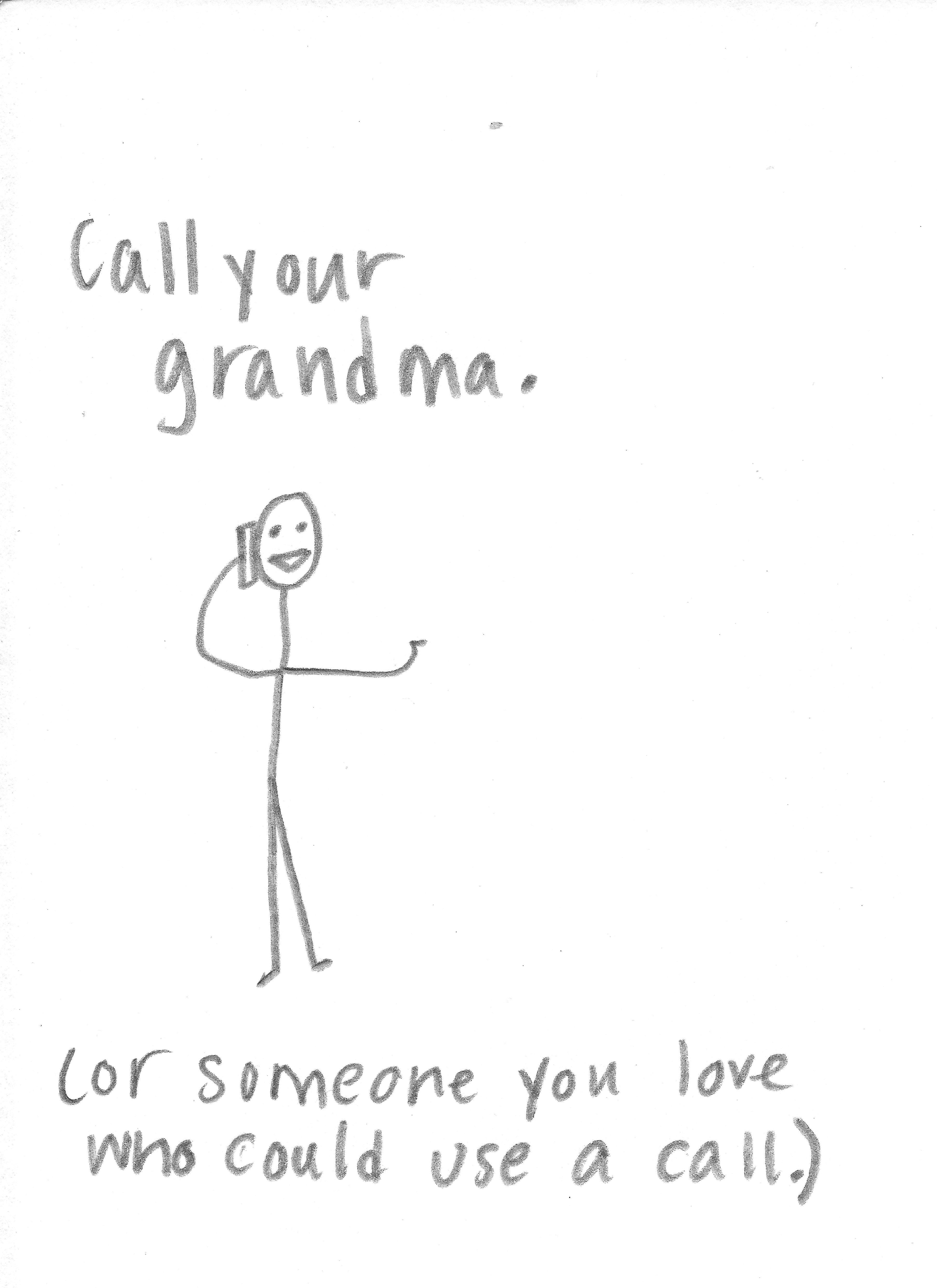
If what you’re looking for is some good intellectual stimulation, why not try …

(And I realize almost any book can be controversial. I’m just trying to say that if you’re trying to get out of outrage mode, reaching for Mark Driscoll’s or John Piper’s or Rob Bell’s latest–or whatever book is inflammatory in your circles–is not a great move. Try ‘controversial’ books like To Kill a Mockingbird instead.)
or even,
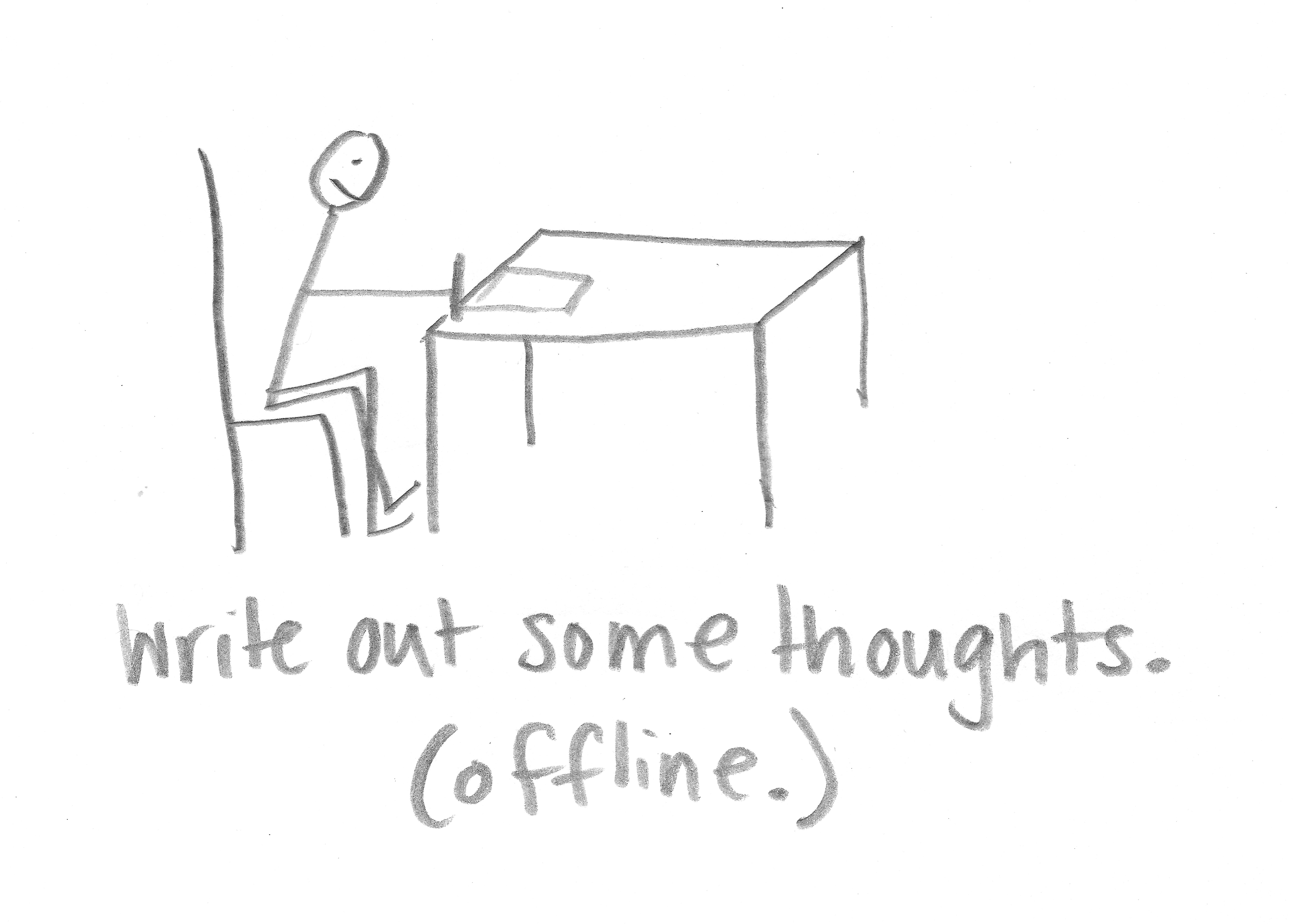
There’s the old joke about a guy who has lost his keys and is searching for them under the streetlight.
“Is this where you dropped them?” the policeman asks (very reasonably.)
“No, I dropped them way over there,” says the man, pointing into the dark distance.
“Then why are you looking over here?” the policeman asks (with understandable confusion.)
“Because the light’s so much better over here.”
If you find yourself addicted to Internet outrage — even as an observer — it might be good to ask what, exactly, you’re wishing you could shine some light on. And whatever that may be, I do hope you find it via a more peaceful path.
Image: Women outraged looking at a computer screen, VanHart / Shutterstock.com
Got something to say about what you're reading? We value your feedback!
